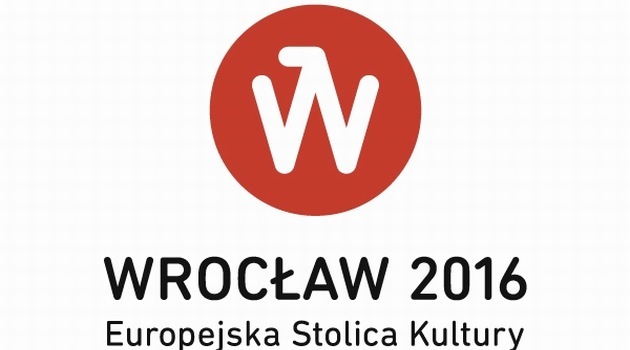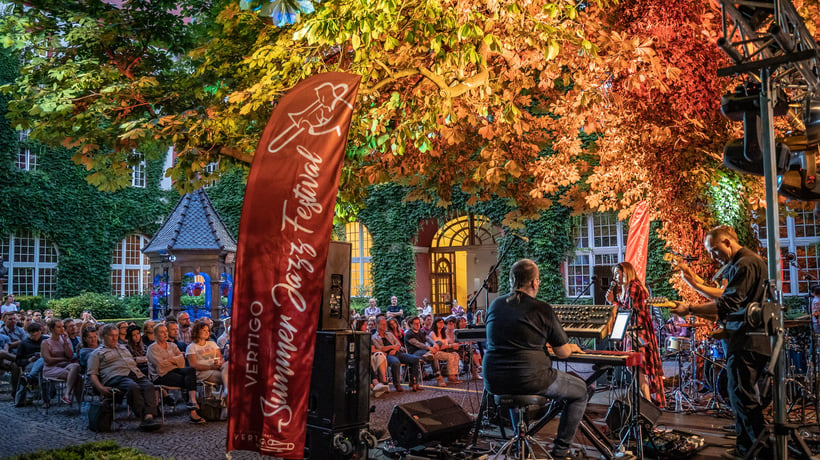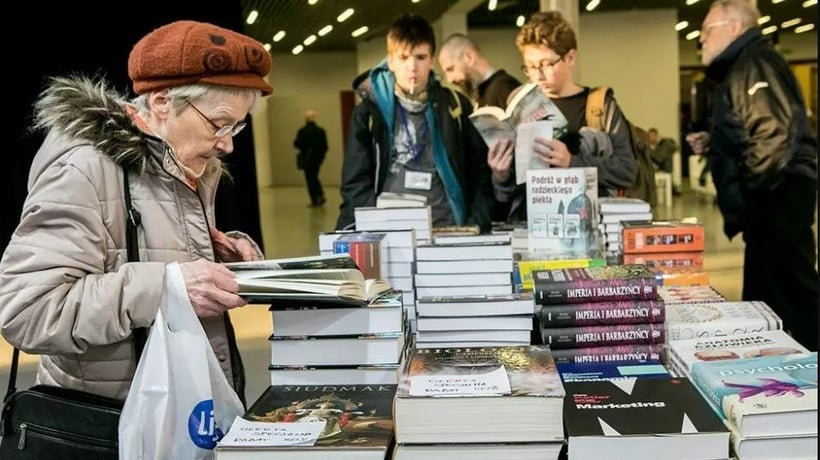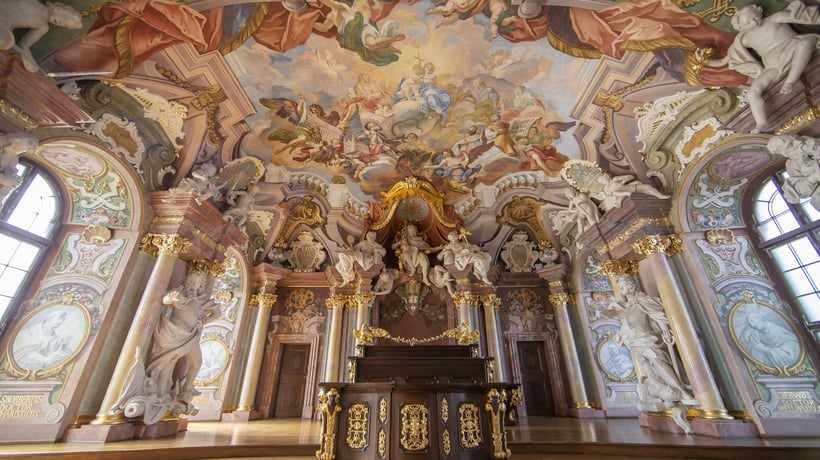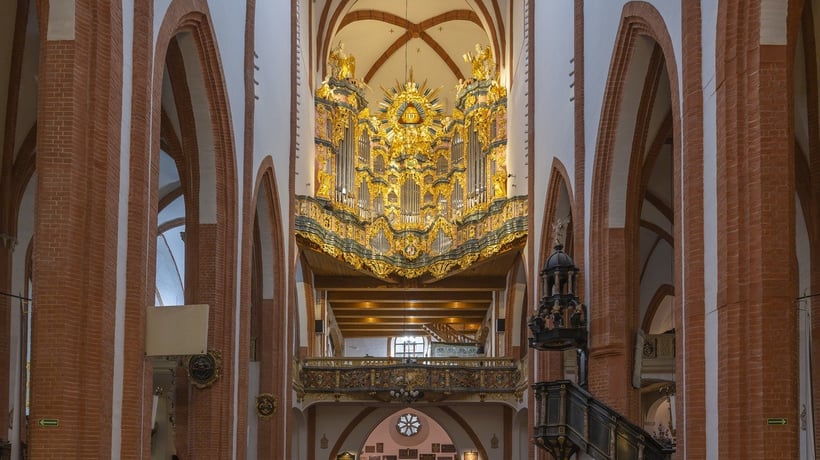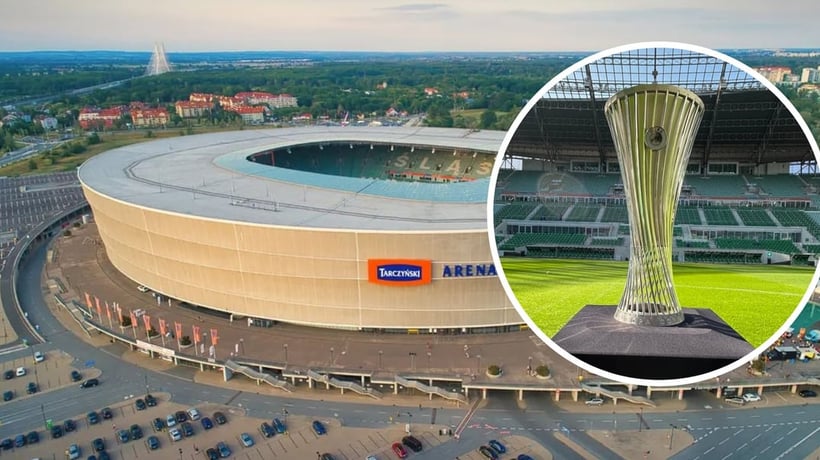When in 2008 the decision was made to take part in the competition for the ECC 2016, the stakes were high from the very start. Wroclaw's application, "Space for Beauty" proved the best in 2011 and won (the second city with the title of the European Capital of Culture was San Sebastian, Spain).
"I believe this may be the most important year in the post-war history of Wroclaw. Our wish and aim is to increase participation in culture, also, we hope to increase tourism. We want Wroclaw to be a very open metropolis on the map of Europe and the world" said Rafal Dutkiewicz, Mayor of Wroclaw, at the presentation of the programme at the Wroclaw Stadium.
Today, ECC 2016 still maintains its Vision ("Metamorphoses of Culture"), Mission ("Spaces for beauty") and Objective ("Variety"). How to achieve the objectives?
Four scenes for the ECC 2016
There will be the Wroclaw Scene, Lower Silesia Scene, the National Scene as well as the European and World Scene. Wroclaw wants to create a common cultural area, allowing the exchange experience, good practices as well as a network of international cooperation.
The Wroclaw Stage is to serve the development of dialogue between the city and the locals, but also facilitate access to culture, and above all to increase cultural participation of the citizens. To this purpose are to serve, among others, projects "mikroGRANTS", "Excluded", or the new Infopunkt Barbara.
Lower Silesia Stage is a tip of the hat towards the region, of which Wroclaw is the best ambassador. The major projects include NieKongres of Cultural Animators, Slot Art Festival, Silesia Art_Biennial.
National Scene - a great opportunity for an intensive debate on culture; the projects in this area include "Wroclaw - City/Laboratory of the Future", the exhibition "Eco Expanded City 2016".
European and world scene. The role of Wroclaw in the culture of Europe and the world is worth the attention. The ECC is a chance to show the diversity and richness of Wroclaw through the presentation of the most interesting phenomena. The international arena must present the multidimensionality and uniqueness of Polish culture.
8 curators, 8 arts
To guarantee the best possible opportunity to tell about the culture, designated were the eight curators. Each of them is responsible for a different area. Zbigniew Maćków for architecture, Roman Gutek for film, Irek Grin for literature, Agnieszka Franków-Żelazny for music, Michał Bieniek for visual arts, Jaroslaw Fret for theatre, Chris Baldwin for performance, Ewa Michnik for opera.
Architecture
"The time for architecture has come. Step by step, we learn to properly use the city and we are becoming an aware and active population" says Zbigniew Maćków. For the ECC 2016, he has planned exhibitions and a series of lectures featuring great architects. Read more about the details here .
Film
Roman Gutek has planned many events (including special editions of the T-Mobile Nowe Horyzonty Festival and the American Film Festival), and with them, plenty of extra specials for the film enthusiasts. There will be, for example, Film Operas - a project in which eminent film directors are invited to carry out opera performances in Wroclaw. The shows will be multi-disciplinary and referring, among others, to the film originals (such as David Lynch's "Lost Highway"). The second project "Adapter - Cinema Without Barriers" is making films available for the blind and deaf. Part of the plan is, for example, a free VOD portal for the blind and deaf - the world's first cinema network created for this type of audience. The third is the European Film Awards (coming up December 10, 2016). In addition to the statuettes gala there will be open concerts, presentations of nominees and winners of previous editions.
Literature and book reading
Wroclaw will become UNESCO's World Capital of Books in 2016 (from April 2016 to April 2017) and therefore, many events have been planned. But I also realize that the capital of Lower Silesia may also be Bibliopolis, the library city. Throughout 2016, drivers will stick to their cars fragments of poetry printed on magnetic labels. As a part of the programme, there will be joint readings in homes and public spaces. Book Aid. World's Book Anthem, to be created in Wroclaw will be quite an attraction. The anthem's lyrics will be a poem by Tadeusz Rozewicz, translated into dozens of languages. The music will be composed in an open competition for musicians and composers from Wroclaw and Lower Silesia.
Music
The project Singing Europe (read more about it here ) will have its next rendition, but this time with the stars of the opera, including Aleksandra Kurzak and Roberto Alagna. The idea is to meet dozens of choirs in Europe and to present great works of opera, oratorio and programs featuring experienced and recognized artists. World Day of Jazz (with Urszula Dudziak as the special guest) will sound off throughout the city from morning until late at night, and especially in the Centennial Hall with the Pergola, the Four Dome Pavilion, the National Music Forum and the Quarter of Four Denominations. In addition, there will be special editions of many popular Wroclaw festivals - e.g. Wratislavia Cantans, Thanks Jimi Festival, the Guitar + Festival. One idea is a joint concert of David Gilmour of Pink Floyd with Leszek Możdżer.
Opera
Ewa Michnik is preparing the "Spanish Night With Carmen - Zarzuela Show", i.e. the show at the Wroclaw Stadium, directed by Waldemar Zawodziński and Ignacio Garcia will be watched by dozens of thousands of people. There will be fragments of the music from "Carmen" with the most beautiful Spanish zarzuelas woven inbetween. On the stage of Wroclaw Stadium a team of 500 artists will perform: the orchestra, ballet, choir and soloists of the Wroclaw Opera, as well as vocal and dance ensembles from Wroclaw and Lower Silesia.
Performance
Chris Baldwin has prepared the substantive side of the project "Bridges", which starts on Friday at the Uniwersytecki Bridge. Starting from Saturday, it will include 27 Wroclaw bridges and footbridges (the programme is available here ). But this is only one of the four elements of the so-called Flow Quartet he planned. The other parts are: "Awakening" (the inauguration ceremony of the ECC 2016), "Flow" (about the construction, destruction and reconstruction of Wroclaw) and "Heaven" (the ECC 2016 closing ceremony). These are the year's biggest artistic events, telling the history of Wroclaw and discovering it anew from the perspective of modern Europe.
The Visual Arts
In autumn 2015 we will see the exhibition "Wroclaw's Europe". presenting the cultural palette and the importance of Wroclaw and Silesia from a few centuries ago. It will be recalled in the work of one of the greatest artists of our part of Europe - Bartlomiej Strobel - born in Wroclaw and residing there for forty years (the turn of the sixteenth and seventeenth century), but woll also present a Wroclaw Bishop, Karol Ferdynand (seventeenth century, in the times of the Vasa dynasty). "Wroclaw From the Back Yard" is a project in which the neglected corners of Wroclaw, back yards in particular, will gain a new face. Artists operating in a given space will work with the residents to develop an artistic compromise. Many other initiatives are also planned.
Theatre
This time the Theatre Olympiad (an international theatre festival since 1993, presenting the achievements of the greatest playwrights from around the world) takes place in Wroclaw, and guests will include such masters as Tadashi Suzuki, Theodoros Terzopoulos, Robert Wilson, Eugenio Barba, Peter Brook and Romeo Castellucci. They will present their performances but also for co-productions with the ECC 2016 and WRO 2016. Another important project is the "Voice of the Excluded", in which the socially excluded groups work with professional artists to create theatre and music performances. Each of the plays features actors or singers, and next to them, among others, residents of nursing homes, prisoners, people with mental disorders or representatives of the minorities.
